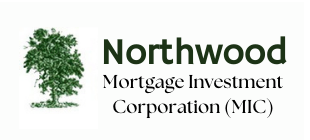Predictions for the summer real estate market are ever-present during the summertime news cycle. It’s important to know which predictions to listen to, and which ones are just blather. It’s also important to understand how to interpret reports of trends received from reliable sources, including the implications for the housing market as a whole.
The real estate industry and the economy have undergone dramatic shifts in recent years, so staying up-to-date on the market is particularly vital during times like these. If you want to have a competitive edge, you need to make sure you know what trends are happening. Is it a buyer’s market, or a seller’s market? Is the market saturated with condos, single-family homes, or other types of dwellings? Is there a dearth of properties available in certain regions?
Understanding the constantly shifting market is difficult, because the key is to understand not just what a particular market’s trends are, but what the interrelated trends mean for the rest of the market. Below are the biggest market predictions for real estate this summer, with information about how they might impact you personally.
Seasonal Confidence in the Real Estate Market
The housing market tends to become hotter or colder in conjunction with the weather. When it’s warmer, people are more likely to buy and move into a home. Conversely, during the cold months, people are less likely to want to go through the arduous task of moving. This means that there should be a peak in buying and selling activity between now and the autumn equinox.
There is a benefit to this tendency toward a summertime peak in real estate activity: people will have an increased confidence in the market. Even the basic knowledge that we’re entering a busy real estate season can help to make people excited about the market. The entire economy benefits from the surge in real estate trading during summertime.
A Hike in Interest Rates
Interest rates are projected to increase during this retail season. This is a sign of a healthy economy. Typically, companies choose to raise their interest rates during times when they forecast that their consumers can afford them. More money is being circulated through the public and back into the economy, which helps with economic growth across the various sectors rather than just in the real estate market.
However, this will probably be the last interest rate hike that we see for a while. In late September, we can expect the housing market to slow down as the cold weather comes in. This will lower the amount of money being spent, and increase the amount reserved in people’s bank accounts. With this economic stagnation, we can expect to see interest rates remain constant or lower.
A dip in interest rates is beneficial for individual consumers, as this means you pay less for financing. However, lower interest rates are not good news for the economy at large. The actual good news, though, is that this ebb and flow in interest rates is a fairly common part of the economic cycle. Interest rates usually drop after the peak housing market in the summer has passed.
The Largest Share of Home Buyers Will Be Millennials
The NAR (National Association of Realtors) has collected a great volume of data about the housing market. In 2016, millennials represented about 34% of the home buying population. The next largest share in 2016, buyers aged 38 to 52 (Gen Xers), consisted of 26 percent of the home buying population. These numbers remained about the same in 2017. In 2018, it’s expected that millennials will continue to represent the largest portion of the home buying market.
2016 was the first year that saw such a marked increase in millennial home buying, but this momentum doesn’t seem like it will decrease anytime soon. Before 2016, millennials had continued to hold the top spot for home buying for three years. Millennials dominate the real estate market charts simply because of their age demographic: Born between the 1980s and late 1990s, most millennials are reaching the age at which they think about buying their starter home.
Conversely, older generations are less likely to buy new homes. Most baby boomers already live in the house in which they intend to retire. Since baby boomers are so close to the age of retirement, or past the age of retirement, they’re not likely to take out a loan to finance a new home. As for Gen X, it’s a fairly mixed bag depending on the age of the person, whether they have children, and whether they want to upgrade their home.
In previous years, Generation Z wasn’t even a factor in home buying analyses. However, if we consider Gen Z to include people born in 1998 and later, the oldest members of this generation are now 20 years old. They have the capability to buy a home, provided they can get a mortgage approval.
That said, don’t expect Gen Z to make a significant impact on housing statistics this year, or for several years to come. Before they can receive mortgage approvals in large numbers, this population segment needs to finish college, find a steady, well-paying job, build a credit score, and pay rent. It’s common for people not to be ready to buy their first home until well into their twenties, or even their early thirties.
For more information, call Northwood Mortgage at 1-888-492-3690 or contact us here.






































